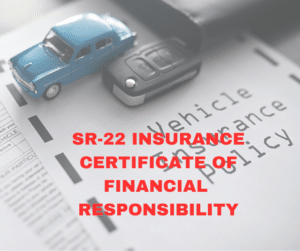
Occasionally, we get calls from parents of potential clients asking about how to deal with their “kids” (often adult children) when it comes to a criminal issue that their child is facing. Specifically, if their child was arrested for DUI, should they leave the child in jail to “teach them a lesson” rather than bail them out?
Our position on this question comes from two concerns. First, from our perspective, there is no longer community policing and that greatly impacts the number of stops that have become “criminal” and lead to someone being arrested (in particular, marijuana-DUI arrests where the individual was not impaired). Cops no longer get cats out of trees. They don’t drive you home when it looks like you’re getting heated at the bar. They don’t settle disputes between neighbors. And, most importantly, the police don’t show up to family disputes and “cool things down” for you. When law enforcement shows up, someone is going to be arrested. In fact, in domestic situations, someone has to be arrested. Yet, not everyone who is arrested should have been and they certainly don’t need to be sitting in jail. Second, it is rarely advantageous to the client to remain in jail in terms of legal justice. Justice should be handled fairly and equitably but, in our opinion, justice is different for those who are able to bail out of jail.
While we can’t tell you how to parent, it is important to understand there are consequences that follow from remaining in jail and some of those consequences significantly impact how an attorney can resolve the case. For example:
1) It is very tempting to plea to a crime that you could beat because you are offered “credit for time served” (you get out of jail as soon as you plead guilty).
2) The prosecution has the upper hand when you’re in jail. They are rougher in plea negotiations (knowing you’ll just want out). The defendant pleas to a higher charge with “credit for time served” or very little extra time so the Prosecutor can keep their conviction stats up.
3) When you’re in jail, anxiety is higher and the urge to get out causes people to make quick decisions that aren’t in their best interest. For example, the client doesn’t want to wait in jail while they find out if they qualify for alternative sentencing programs like veterans court or behavioral health court.
4) When you are in jail, it is much more likely you’ll miss important deadlines such as sending in your DOL hearing request to challenge a suspension. If you were given a traffic citation at the same time as your arrest, you may miss the 15 day window to contest that ticket. Additionally, you’re racking up very large fees while your car is in impound.
5) Perhaps most importantly, it is harder to communicate with a client in jail. It makes it harder to form a defense and to analyze alternative sentencing options. This is inherently unfair to poor people who do not have the financial means to bail out.
Finally, we consider long term consequences for all of our clients. How will a conviction or plea impact your career goals or financial concerns for your family? These are not concerns for the State. In fact, the role of law enforcement has changed dramatically over the last 20+ years. They are understaffed, overstressed, risks are higher, and arrests are more likely. In fact, one in four Americans has an arrest record. While both violent crime and property crime has dropped significantly over the last quarter century, there are spikes in certain arrests. For example, just between 1990 and 2010, there was an 80% increase in drug possession and use arrests. The entire methodology and motivation for policing a community has changed and, in our opinion, too many people are arrested for “crimes” that could have been resolved another way. While we can’t remove an arrest from your record, when possible, we want our clients to grow from the experience but not face lifelong obstacles because they had an encounter with law enforcement.
*See below for some interesting facts from the Brennan Center For Justice.
So. to answer the question about “lessons,” you need to ask what is most important to you in the moment—an immediate lesson or a very long term consequence. In DUI situations, law enforcement and the prosecutor don’t care that you’re trying to “do the right thing” by teaching a lesson. They have a job to convict and they do that job very well.
If you would like your child to be convicted of a DUI and have the insurance expenses, license suspension, employment consequences, ignition interlock requirements, and jail time, then you should let the State have the upper hand by leaving your child in jail. Statistically, this will increase their odds of a conviction or pleaing to a charge so they can get out of jail. If you’d rather allow an experienced defense attorney to guide your child through the maze of criminal defense with an eye toward the future with employment consequences in mind, you might consider talking with your child about your concerns within the privacy of your home and leaving legal lessons to the attorney and court.
* The Numbers in Perspective:
America now houses roughly the same number people with criminal records as it does four-year college graduates.
Nearly half of black males and almost 40 percent of white males are arrested by the age 23.
If all arrested Americans were a nation, they would be the world’s 18th largest. Larger than Canada. Larger than France. More than three times the size of Australia.
The number of Americans with criminal records today is larger than the entire U.S. population in 1900.
Holding hands, Americans with arrest records could circle the earth three times

Get help now
Whether you choose to handle your case alone or engage the Witt Law Group, being informed and prepared is essential. Early involvement of an attorney can significantly impact your chances of a fair recovery, allowing you to focus on healing while we handle negotiations with insurance adjusters to secure fair compensation for your injuries.




